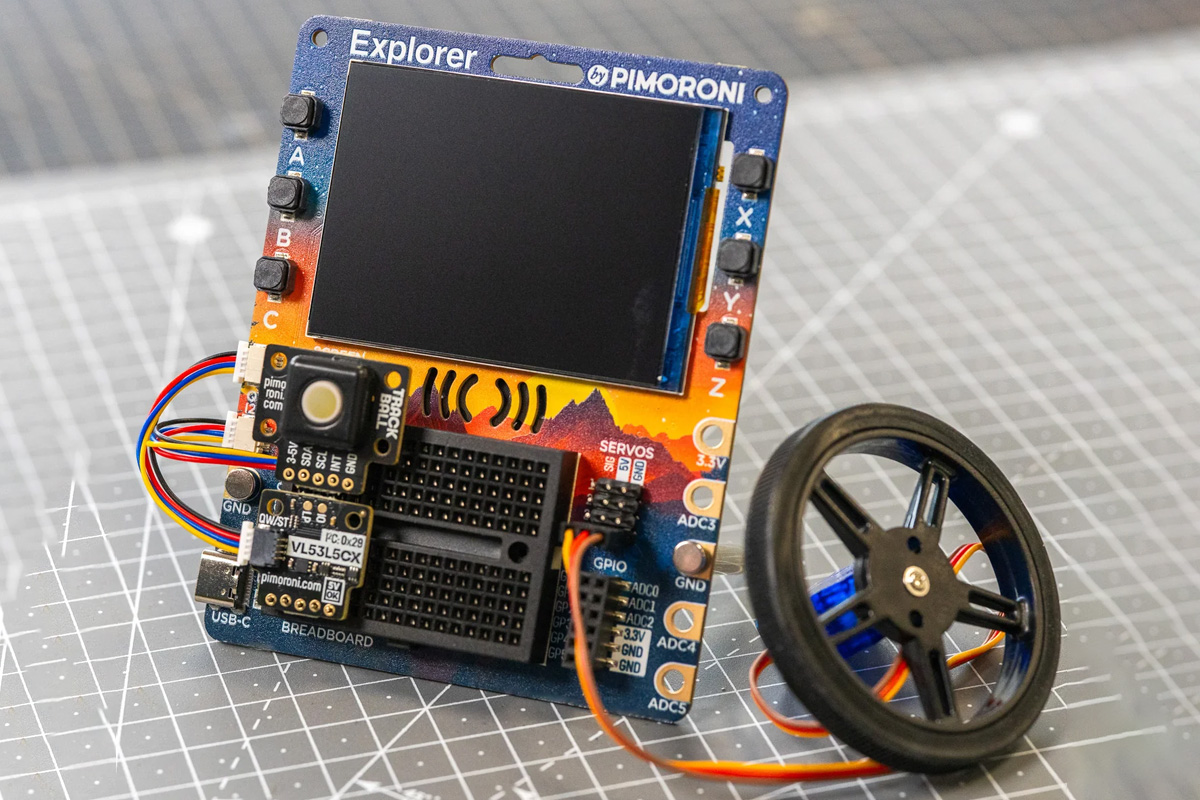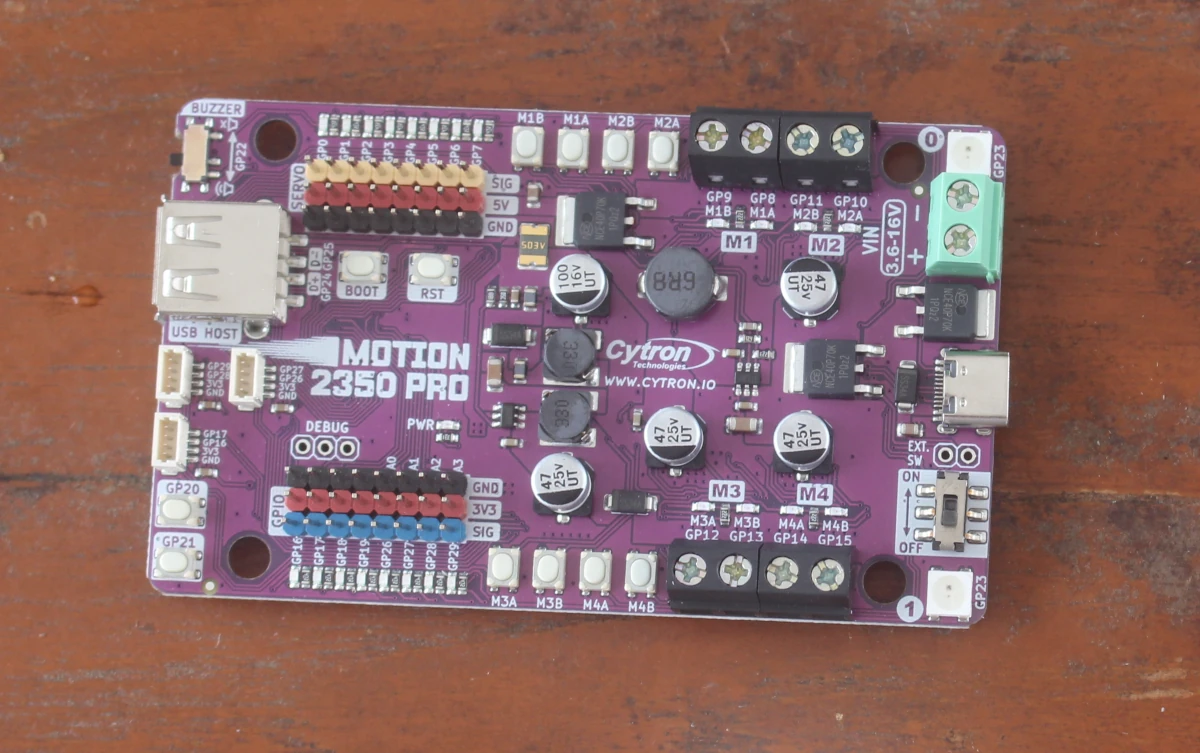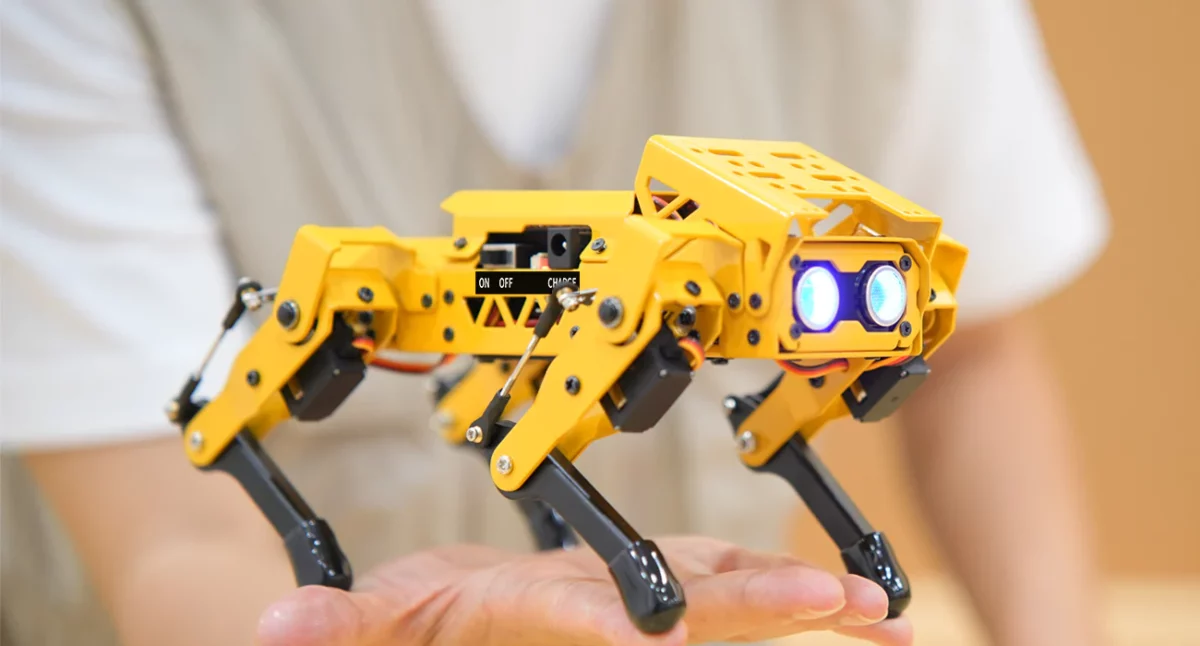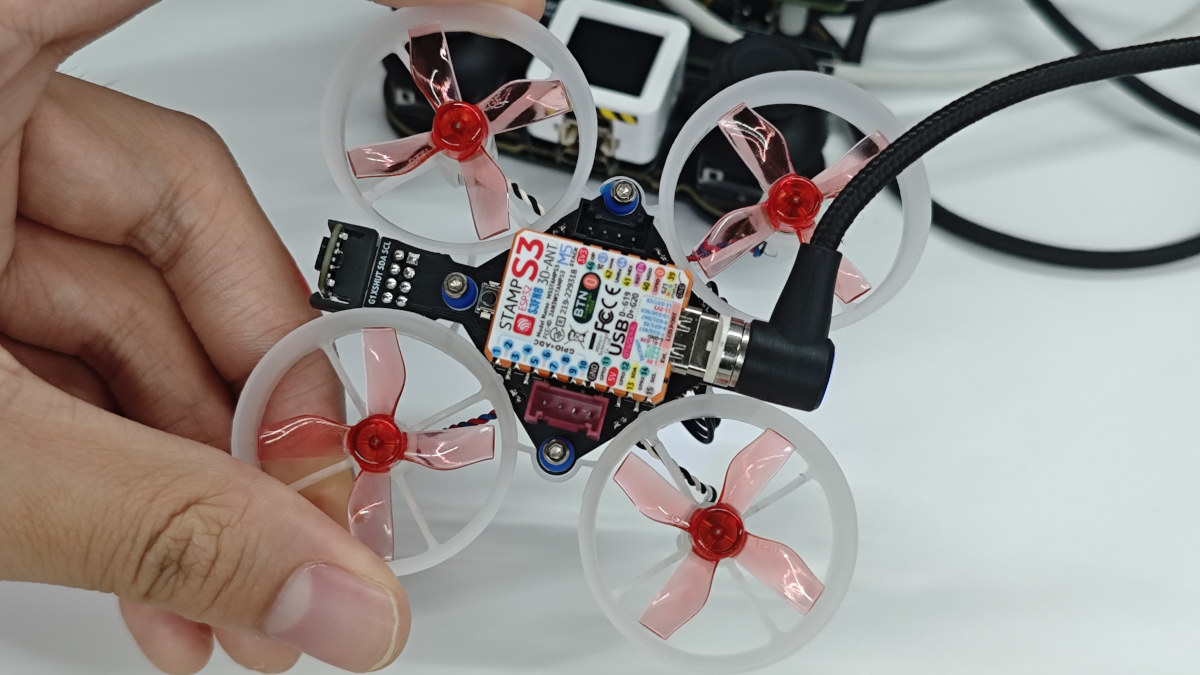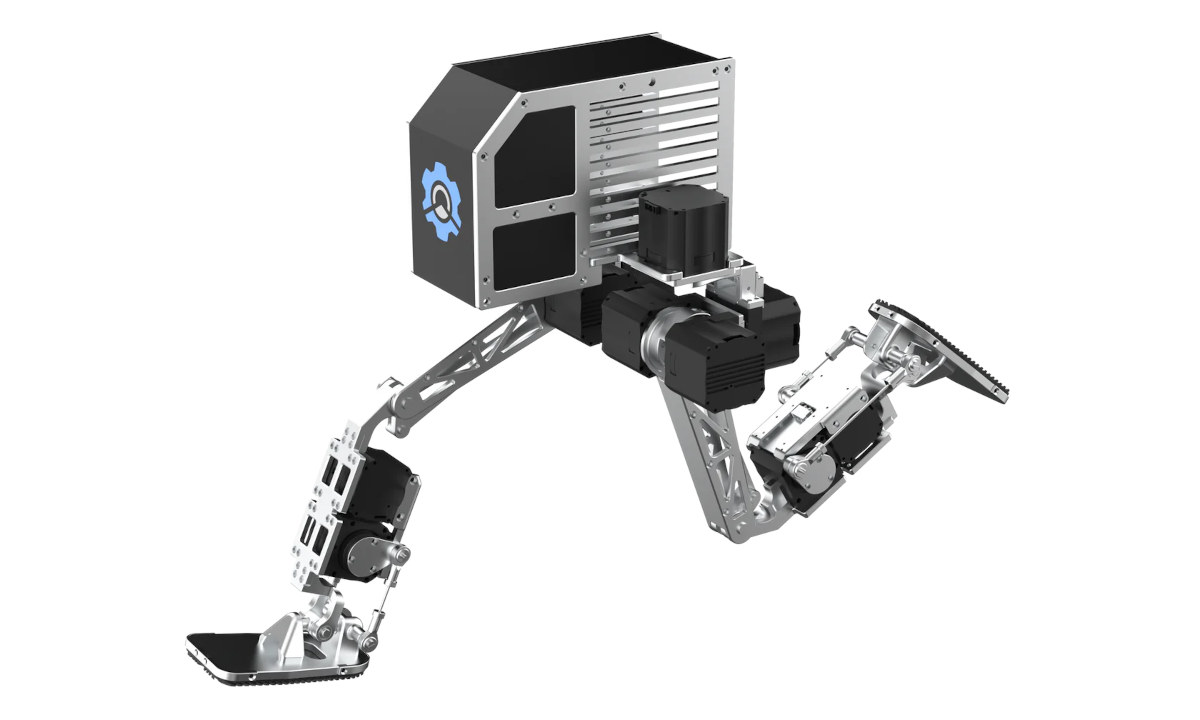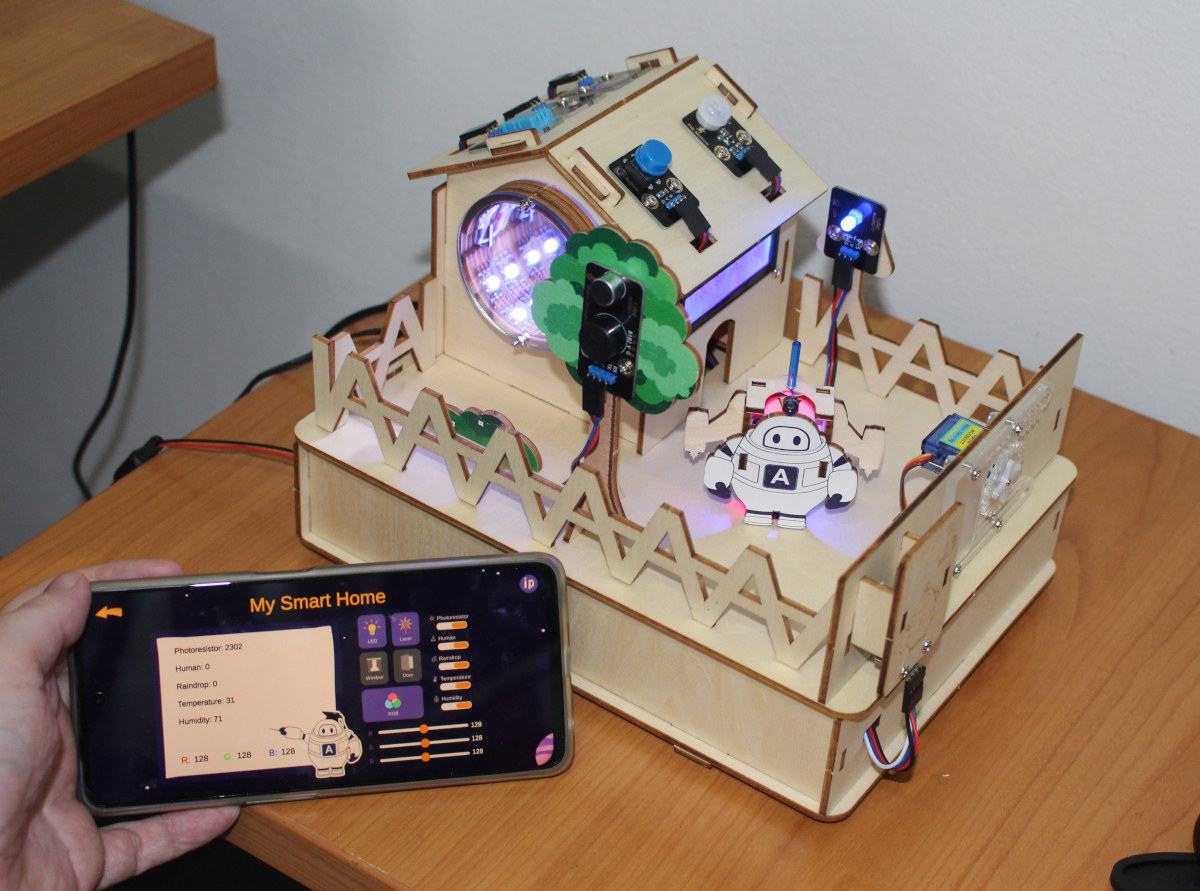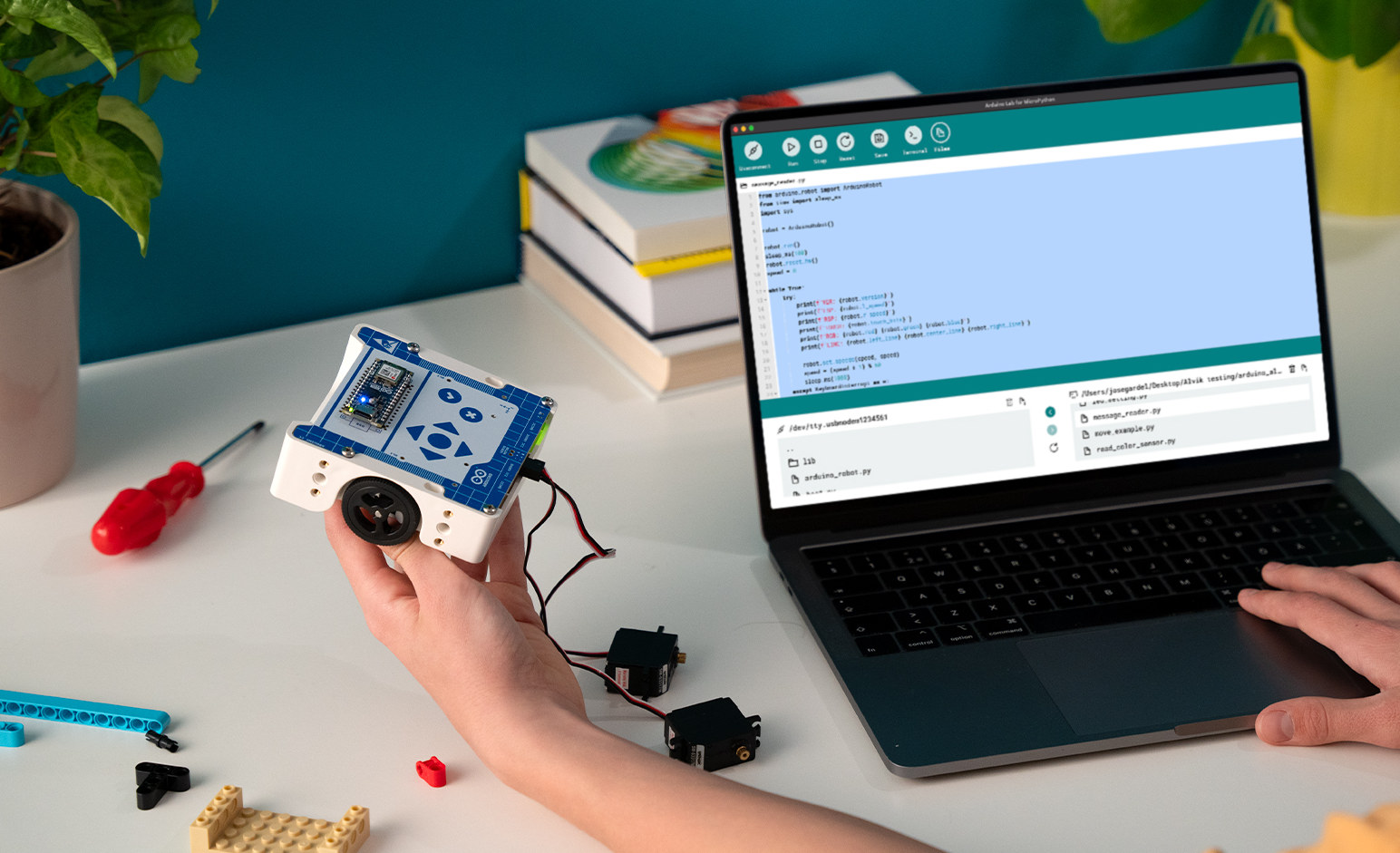The Pimoroni Explorer board is an electronic prototyping board built around the Raspberry Pi RP2350 chip with a 2.8-inch LCD screen, a speaker connector, and various I/Os, which makes it easy to build circuits, prototype projects, and even make small robots. It also features a mini breadboard, tactile buttons, and crocodile clip terminals, making it suitable for both beginners and experienced makers. The RP2350 MCU was recently released by Raspberry Pi Limited along with the $5 Raspberry Pi Pico 2 board. Since that initial release, we have seen many RP2350-based development boards like the Cytron MOTION 2350 Pro, the Bus Pirate 5XL and 6, and many other development boards released, feel free to check those out if you are looking for development boards built around the RP2350 MCU. Pimoroni Explorer board specifications Microcontroller – Raspberry Pi RP2350B MCU CPU Dual-core Arm Cortex-M33 @150MHz with Arm Trustzone for secure boot Dual-core 32-bit […]
Cytron MOTION 2350 Pro – A Raspberry Pi RP2350 board for robotics and motor control
As mentioned in the Raspberry Pi Pico 2 article, third-party RP2350 boards are already available, and one of them is the MOTION 2350 Pro board from Cytron designed for robotics and motor control. The board features a DC motor driver capable of controlling up to 4 brushed DC motors with voltage ratings from 3.6V to 16V. It also features eight 5V servo ports, eight GPIO ports, and three Maker ports for sensor or actuator modules. Each I/O is matched with its own LED which makes the board ideal for the education market and also simplifies debugging. Finally, a USB 1.1 host port is present to connect peripherals such as the RF dongle for a joystick or a keyboard. Cytron MOTION 2350 Pro specifications: Microcontroller – Raspberry Pi RP2350 CPU – Dual-core Arm Cortex-M33 processor @ 150MHz (RISC-V cores are not mentioned, so they are likely not used at all) Memory […]
MechDog AI Robot Dog features ESP32-S3 controller, supports Scratch, Python, and Arduino programming
Hiwonder’s MechDog is a compact AI robot dog powered by an ESP32-S3 controller that drives eight high-speed coreless servos. It features built-in inverse kinematics for precise and agile movements and has ports for various I2C sensors such as ultrasonic and IMU sensors. The robot is equipped with a durable aluminum alloy frame and a removable 7.4V 1,500mAh lithium battery for power. MechDog integrates with the ESP32-S3 AI vision module, supporting dual-mode network communication either AP Hotspot Direct Connection Mode or STA LAN Mode so that users can access a designated URL webpage via an app or PC for real-time monitoring using a high-definition camera. Also, this robot dog supports various sensor modules, including a touch sensor, light sensor, dot matrix display, and programmable MP3 module, allowing for secondary development and expansion, offering extensive creative possibilities. Previously, we wrote about the Waveshare UGV AI Rover, which features a 2mm thick aluminum […]
M5Stamp Fly ESP32-S3 WiFi drone is controlled by the M5Atom WiFi joystick controller using ESPNOW
M5Stack M5Stamp Fly is a tiny ESP32-S3 WiFi drone based on the company’s M5Stamp S3 WiFi 4 and BLE IoT module, equipped with four motors and several sensors. and controllable the M5Atom WiFi joystick controller also based on ESP32-S3 WiSoC. We have recently seen some tiny ESP32 or ESP8266 WiFi drones with a low-cost ESP32 DIY drone and the PiWings 2.0 drone, but the M5Stamp Fly is more advanced with a total of six sensors including a barometer, two time-of-flight distance sensors, a 6-axis IMU, a 3-axis magnetometer, and an optical flow detection sensors, plus two Grove connector for additional sensors or modules. M5Stamp Fly (K138) specifications: Main controller – M5Stamp S3 module WiSoC – Espressif Systems ESP32-S3FN8 dual-core 32-bit Xtensa LX7 microcontroller with AI vector instructions up to 240MHz, RISC-V ULP co-processor, 512KB SRAM, 2.4GHz WiFi 4 (802.11b/g/n), Bluetooth 5.0 BLE + Mesh, 8MB flash Connectivity 2.4 GHz WiFi […]
Adeept Robot HAT for Raspberry Pi is designed for DIY projects and educational needs
The Adeept Robot HAT V3.0 is a motor and sensor driver HAT that supports Raspberry Pi 5, Pi 4, and Pi 3 models. The board features a bunch of headers that give access to sensor and motor controllers including sixteen servo motor ports, a three-channel line tracking sensor, an ultrasonic sensor, IR receivers, WS2812 RGB LEDs, and more. Additionally, the board features an integrated 8.4V battery charger with a Type-C port for charging. All these features make it easy to build DIY robotics and smart car projects with this HAT. Previously we have written about similar educational robot kits including the Arduino Alvik educational robot, the XGO-Rider self-balancing robot, the Waveshare UGV Rover, SunFounder GalaxyRVR, and much more. Feel free to check that out if you are interested in those topics. Adeept Robot HAT V3.0 specifications HAT Name – Adeept Robot HAT V3.0 Host controller (one or the other) Raspberry Pi […]
High Torque Robotics Mini π is a bipedal robot powered by an Orange Pi 5 SBC
High Torque Robotics’ Mini π is a 54cm high bipedal robot that can walk and dance with two legs and leverages the Orange Pi 5 SBC’s features such as the 6 TOPS AI accelerator in the Rockchip RK3588S processor. The robot offers 12 degrees of freedom (DOF) and can run, jump, and even flip thanks to its twelve join motors that were developed by the company. The Mini π is designed for locomotion algorithm research and education and supports ZMP (zero moment point), MPC (Model Predictive Control), reinforcement learning locomotion control algorithms, and ROS SLAM navigation features. Mini π bipedal robot highlights: SBC – Orange Pi 5 RK3588S single board computer Controller – Custom-design “high-performance underlying controller” using 4x CAN FD communication DOF – 6 DoF per leg, or 12 in total Joint motors 8x HTDM-5047-36-NE with gear ratio: 36, 16Nm peak torque 4x HTDM-4438-32-NW with gear ratio: 32, […]
ACEBOTT QE007 review – An ESP32-based Smart Home STEAM education kit for 8+ years old kids
ACEBOTT QE007 ESP32-based Smart Home Starter Kit is a STEAM (Science, Technology, Engineering, Arts, and Maths) education platform that involves story reading, assembling a wooden house with various electronics sensors wired to an ESP32 board, and learning about electronics concepts (such as voltage and current) and coding with the Arduino IDE through an 18 lesson course. ACEBOTT has various STEAM education kits, and the company sent us the QE007 “IoT Smart Home Starter Kit” for evaluation and review. So I’ll go through an unboxing, report my experience with the assembly process, and the Arduino tutorials by going through some of the eighteen lessons. ACEBOTT QE007 unboxing The kit comes in a nice-looking retail that reads “ACEBOTT Explorer Series QE007” and “ACEBOTT IOT Smart Home Started Kit”. The front of the package also highlights its a STEAM education kit designed for 8+ years old kids. The bottom side gives the backstory […]
Arduino Alvik is a 3-wheel robot designed for STEAM education
Arduino Education’s Arduino Alvik is a 3-wheel educational robot that was initially unveiled at the Bett 2024 show in London and designed to teach robotics, programming, and other STEAM subjects. The robot is based on an Arduino Nano ESP32 board and comes with a set of nineteen lessons designed by Arduino Education’s team in collaboration with teachers so that students can learn the basics of IoT, get started with MicroPython, and get themselves familiar with various physics and engineering concepts. The company has yet to provide the full specifications for the Alvik robot, but here’s what we know at this stage: Mainboard – Arduino Nano ESP32 2x wheels plus 1x ball wheel Sensors – “High-quality sensors” that include a ToF ranging sensor, line-following sensors, a 6-axis accelerometer & gyroscope, a proximity sensor, and color sensors. Expansion 2x Grove I2C connectors 2x Qwiic connectors 6-pin servo motor header for up to […]


